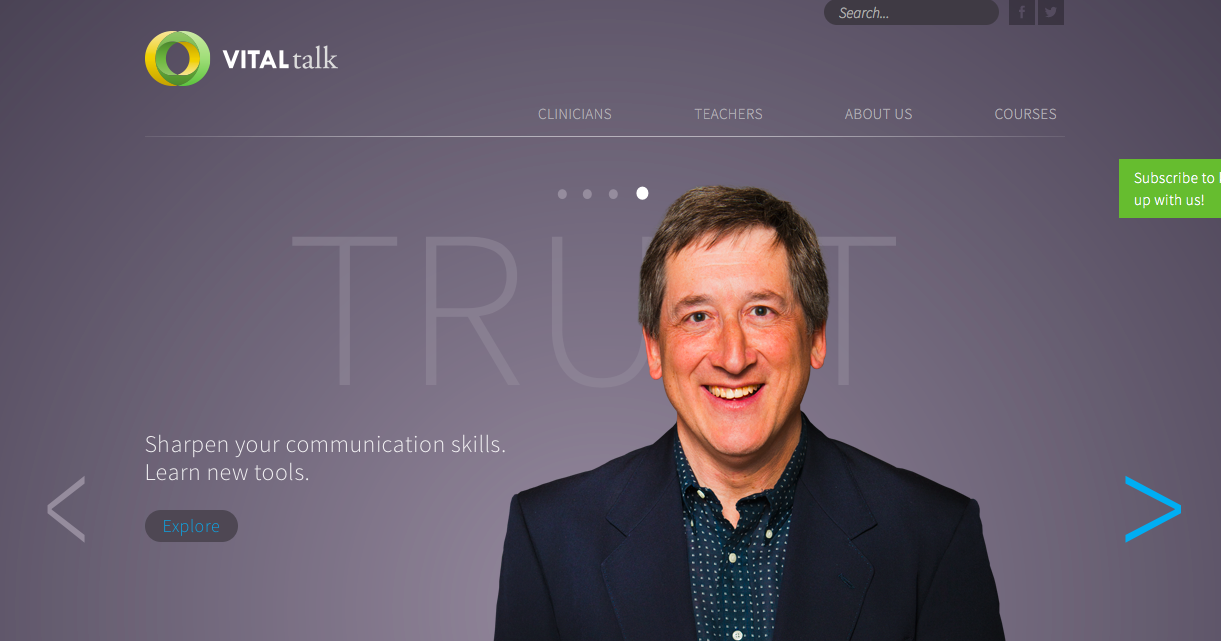
by: Eric Widera (@ewidera)
It was with some hesitancy I decided last year to take the VitalTalk Faculty Development course. Why the hesitancy? Honestly, I thought to myself that I’ve been doing palliative care for over a decade. I’ve taught fellows, residents, medical students, and a whole host of other health care professionals. I’ve wrote book chapters on this stuff. Plus, I’ve read everything that I could get my hands on from the VitalTalk creators Tony Back, James Tulsky, and Bob Arnold. What, I thought, am I going to get out of this? As it turned out, a lot.
VitalTalk changed the way I teach communication. As one example, any of my fellows that I work with can now recite word for word the questions that they know I’ll be asking at the end of a family meeting: “What is one thing that went well that you want to continue” and “what one thing do you want to do differently in the future?” These questions are part of the goal I set for myself at VitalTalk to change my feedback to one that rambled on for 15 minutes to one that is brief, specific, learner centric and future-oriented. And you know what? It works!
I can say unequivocally that VitalTalk has made me better at serious illness communication and a more effective teacher. So, whether you considering ways to deepen your skills in communication or you are interested in learning how to teach serious illness communication techniques to others, I can’t encourage you more to take one of the following VitalTalk’s 2016 Courses:
1. Mastering Tough Conversations: This is a two day, advanced level, hands on learning experience in Aspen (I know, rough, right?) You get to learn communication skills around advance care planning early in a patient’s illness, late goals of care conversations, dealing with requests for treatments with minimal efficacy, and more! Here is a clip of what happens:
2. VitalTalk Faculty Development: Another great Aspen adventure. This one is a 4 day train-the-trainer faculty development program for physicians and/or advance practice providers who are committed to becoming communication educators (and potentially VitalTalk faculty). This is the one that I did, and it truly blew me away. Take a look at this clip to learn a little more:
3. VitalTalk online course:This is a new, interactive online course arranged around a series of 15 modules. In addition to a videos and other instructional tools, participants are partnered with VitalTalk mentors who give individualized feedback on their communication skills.
Still not convinced? Check out the VitalTalk website for more information, or check out this previous post on how not to use these communication skills at home!



